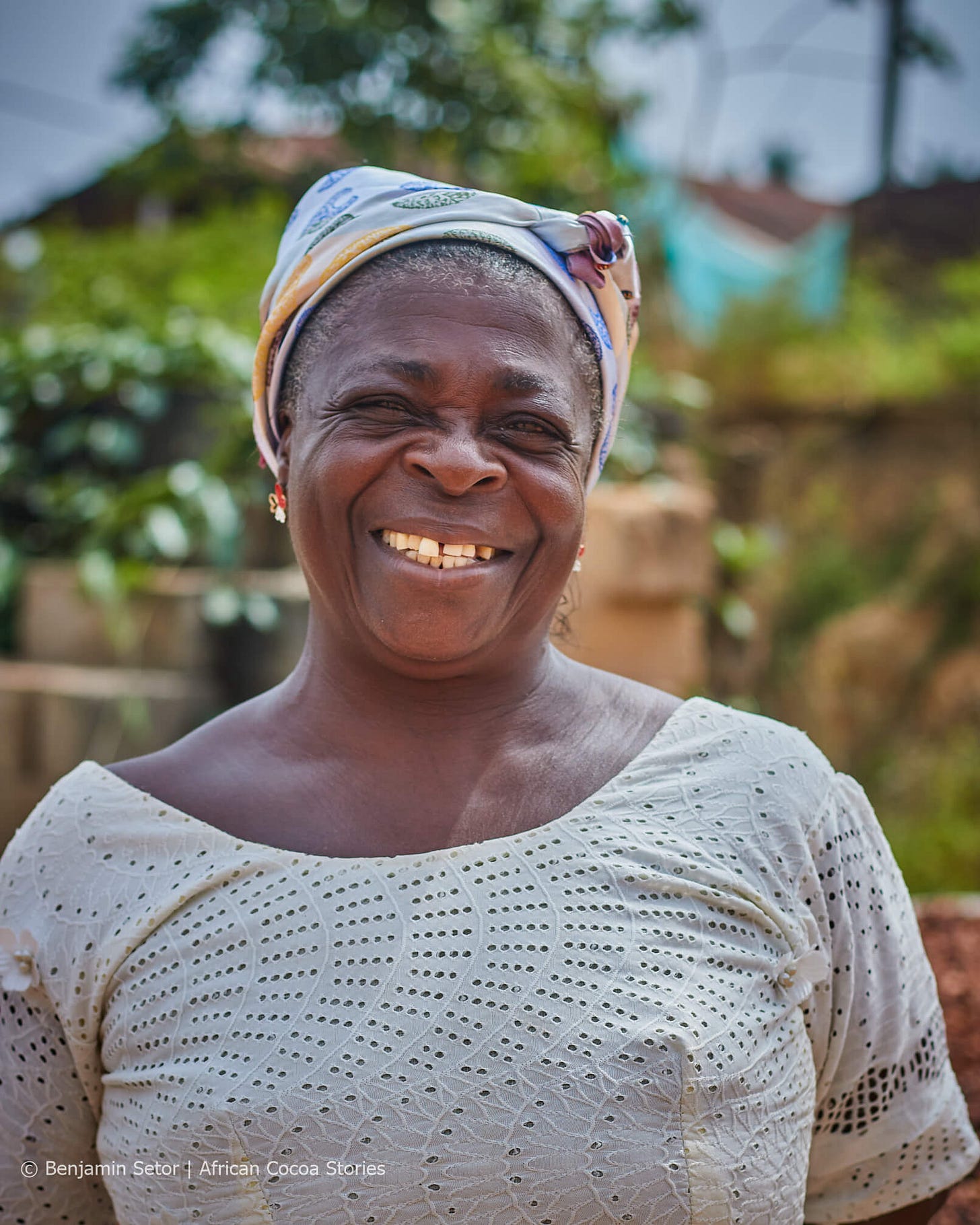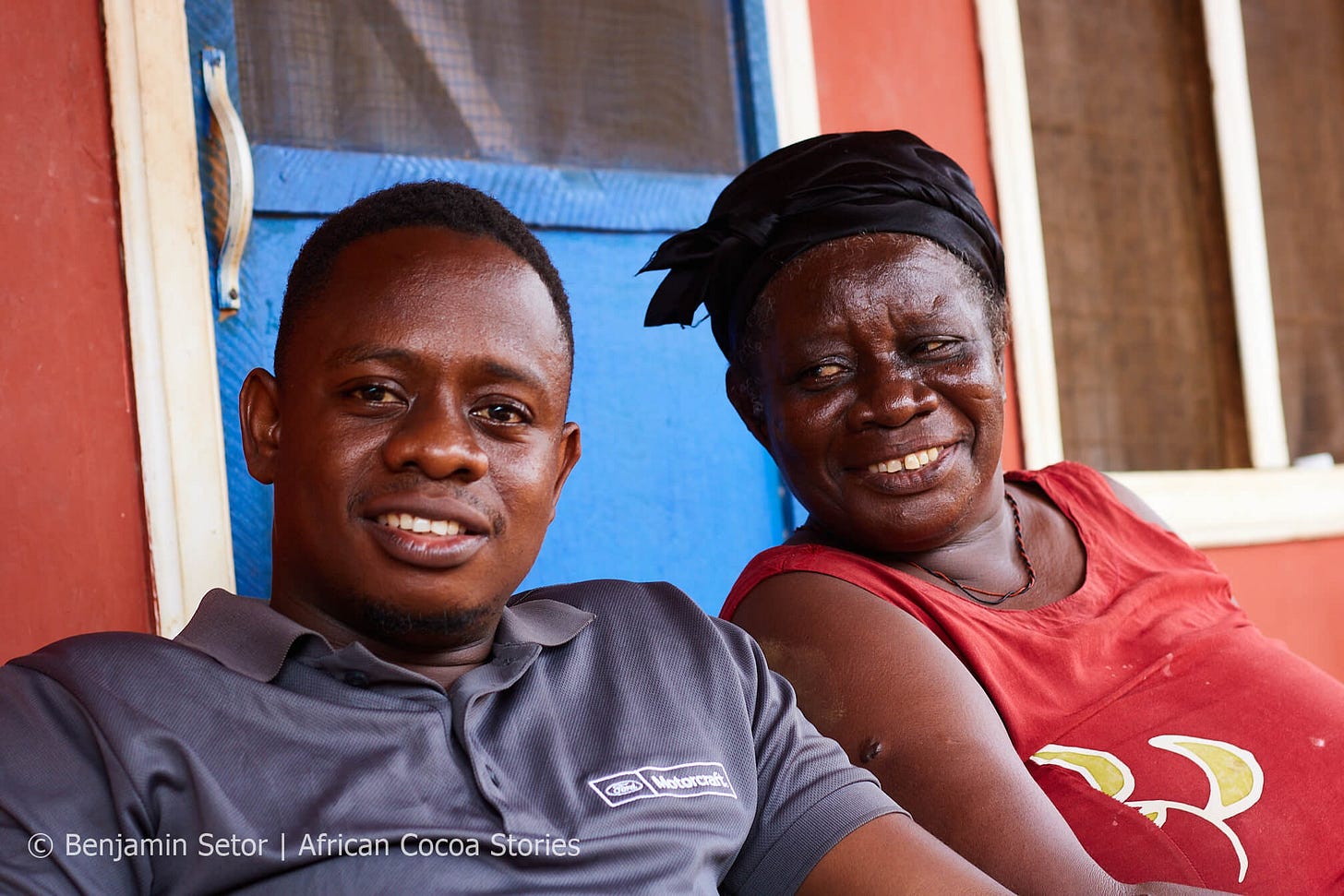📌 Thanks for reading this. I hope February is treating you well.
If this is your first time reading my work, thank you for joining the community. There’s so much to discover, so stick around as we explore Africa’s cocoa culture together.
Now, let’s see what I have for you today….
Since I began full-time research into African cocoa stories, my conversations with cocoa farmers have been exploratory.
We talk about farming, marriage, politics, food, football, cultural change, etc. No specific themes guiding my questions.
But lately I’ve been wondering: What’s the best angle to take if I really want to understand cocoa farmers? Because at the heart of my story search is a desire to know cocoa farmers on a deeper level.
In search of an answer, I started playing back interview recordings from the past eight months. It wasn’t long before I noticed a pattern.
In almost every conversation, my starting point was a question like Who taught you to farm? or, How did you first learn cocoa farming?
The responses followed a familiar rhythm. Farmers told stories of growing up in a cocoa-growing family, living with a cocoa-farmer uncle, or being raised by their grandparents on a farm.
And then it hit me:

Small-holder farmers in Ghana produce about 20% of the world’s annual cocoa beans. Yet, in all my research, not a single farmer has mentioned learning cocoa farming in school.
Their stories always begin with “I was born into cocoa.” Meaning they absorbed the craft by growing up in the midst of people who practiced it.
This means that for the chocolate industry to reach its current value of US$140.10bn, talent development and knowledge transfer in cocoa production have happened entirely outside the classroom, and generations of cocoa farmers have overseen it.
But as a storyteller, it’s not enough to observe that cocoa farmers have sustained this knowledge transfer system for generations. I want to see exactly how it has happened.
And thus, dear friend, my theme for 2025 is decided:
Education.
I’m curious to see in action the knowledge transfer system that has kept Ghana producing quality cocoa beans for the world market since 1879.
As always, my approach will be ethnographic. I’ll spend time with cocoa farmers across the country and participate in their work. But this time, my questions will mostly revolve around their experiences learning cocoa farming and pursuing classroom education.
I want to help us better understand the cocoa growing individual through the lens of their skills and knowledge development. But beyond that, I hope to discover how Ghanaian cultural contexts facilitate talent development for the global cocoa-chocolate industry.
Many other sub-themes will emerge, for sure. But the thought of the many stories I’ll get to share makes me excited.
That said, happy 2025! I pray that whatever your goals are for this year, you’re able to achieve them. I’m rooting for you.
And cheers to more cocoa stories and reflections!
To support this research, become a paid subscriber and join the amazing community making African Cocoa Stories possible. Thank you in advance.




